 Libri di Siegfried Kracauer su Unilibro.it) Libri di Siegfried Kracauer su Unilibro.it)
|
|
2024 |
 Title :
Scritti americani. Saggi su cinema e cultura popolare
Title :
Scritti americani. Saggi su cinema e cultura popolareAuthor: Kracauer Siegfried Publisher: Cue Press Spartendo un destino comune a molti altri intellettuali suoi contemporanei, quello di esule dalla Germania nazista negli Stati Uniti, Kracauer potè osservare da vicino l'influenza della cultura europea sul Nuovo Continente e gli effetti del cinema e di nuove 'mode' come la psichiatria sulla nascente cultura di massa del dopoguerra. Il volume raccoglie una fondamentale antologia di articoli del grande studioso tedesco apparsi in numerose riviste e testate americane. Tali scritti delineano la figura di un pensatore senza pregiudizi, che, pur autenticamente inserito nel nuovo contesto culturale statunitense, riesce da europeo a restituire «una prospettiva interna e straniata insieme, della società americana, della sua cultura e del suo cinema». Prefazione di Emiliano Morreale. € 29,99
Scontato: € 28,49
|
|
|
2023 |
 Title :
La massa come ornamento
Title :
La massa come ornamentoAuthor: Kracauer Siegfried; Morreale E. (cur.) Publisher: Cue Press Dallo studio della fotografia, passando ad acute analisi sociologiche del rapporto tra spettatore e grande schermo, fino a profili intellettuali di artisti e pensatori come Benjamin, Kafka e Simmel, il volume raccoglie numerosi saggi scritti da Kracauer negli anni Venti. L'interesse del grande pensatore tedesco si focalizza sul comportamento dei diversi gruppi sociali, in particolare la tendenza della modernità verso il «culto del divertimento» che nel corso del Novecento, nella futura età del consumo, modificherà lo statuto della massa, atomizzandola in una collettività di individui. € 29,99
Scontato: € 28,49
|
|
|
2022 |
 Title :
Teoria del cinema. La redenzione della realtà fisica
Title :
Teoria del cinema. La redenzione della realtà fisicaAuthor: Kracauer Siegfried; Quaresima L. (cur.) Publisher: Cue Press Lungo le pagine di Teoria del cinema Sigfried Kracauer sviluppa un'analisi fondamentale del rapporto tra cinema e fotografia, allargando il suo spazio di riflessione non solo agli elementi tecnici propri della settima arte, ma anche ad aspetti inerenti alla sociologia e alla filosofia estetica. In questa appassionata dissertazione che tocca tutti gli snodi fondamentali della storia del cinema dai fratelli Lumière fino ai fenomeni cinematografici hollywoodiani degli anni Cinquanta, emerge la prospettiva dell'autore, secondo cui il cinema deve rimanere fedele alla realtà fisica, e dove i film siano capaci di penetrare «il mondo che abbiamo dinanzi agli occhi». Prefazione di Miriam Bratu Hansen. € 42,99
Scontato: € 40,84
|
|
|
2020 |
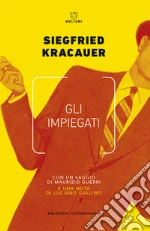 Title :
Gli impiegati
Title :
Gli impiegatiAuthor: Kracauer Siegfried Publisher: Meltemi Kracauer mette insieme un "mosaico" per definire chi sono gli impiegati: con preveggente intuizione l'autore comprende che l'impiegato - questa figura lavorativa in forte espansione nella Germania degli anni Venti - sarebbe diventato decisivo per la storia del lavoro e della società nei decenni futuri. Gli impiegati condividono con i proletari la condizione economica, ma in loro "continua a vivere lo spettro di una condizione borghese scomparsa". In queste pagine Kracauer dà vita al ritratto dell'uomo della classe media, rinchiuso in un egoismo narcisistico che è cieco dinanzi alla propria condizione e al proprio futuro e la cui esistenza è ridotta a ingranaggio al servizio del consumo e dello spettacolo. Un ritratto dell'impiegato europeo degli anni Trenta in cui si profila la condizione del lavoratore contemporaneo. Con un saggio di Maurizio Guerri e una nota di Luciano Gallino. € 14,00
Scontato: € 13,30
|
|
|
1919 |
 Title :
From Caligari to Hitler
Title :
From Caligari to HitlerAuthor: Siegfried Kracauer Publisher: Princeton University Press € 20,50
|
|
|
1916 |
 Title :
Georg
Title :
GeorgAuthor: Kracauer Siegfried, Skoggard Carl (TRN) Publisher: Baker & Taylor € 16,60
|
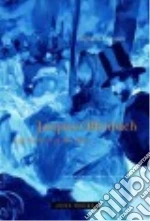 Title :
Jacques Offenbach and the Paris of His Time
Title :
Jacques Offenbach and the Paris of His TimeAuthor: Kracauer Siegfried, David Gwenda (TRN), Mosbacher Eric (TRN), Koch Gertrud (FRW) Publisher: Zone Books € 22,30
|
|
1912 |
 Title :
Siegfried Kracauer's American Writings
Title :
Siegfried Kracauer's American WritingsAuthor: Siegfried Kracauer Publisher: UNIVERSITY PRESSES Siegfried Kracauer (1889-1966), friend and colleague of Walter Benjamin and Theodor Adorno, was one of the most influential film critics of the mid-twentieth century. In this book, Johannes von Moltke and Kristy Rawson have, for the first time assembled essays in cultural criticism, film, literature, and media theory that Kracauer wrote during the quarter century he spent in America after fleeing Nazi-occupied Europe. In the decades following his arrival in the United States, Kracauer commented on developments in American and European cinema, wrote on film noir and neorealism, examined unsettling political trends in mainstream cinema, and reviewed the contemporary experiments of avant-garde filmmakers. As a cultural critic, he also ranged far beyond cinema, intervening in debates regarding Jewish culture, unraveling national and racial stereotypes, and reflecting on the state of arts and humanities in the 1950s. These essays, together with the editors' introductions and an afterward by Martin Jay offer illuminating insights into the films and culture of the postwar years and provide a unique perspective on this eminent émigré intellectual. € 32,30
|
|
|
2011 |
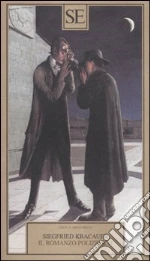 Title :
Il Romanzo poliziesco
Title :
Il Romanzo poliziescoAuthor: Kracauer Siegfried; Cristin R. (cur.) Publisher: SE "Il romanzo poliziesco, conosciuto dalla maggior parte delle persone di cultura solo come pastiche extraletterario destinato a sopravvivere a malapena nelle biblioteche ambulanti, si è conquistato a poco a poco una posizione la cui importanza e il cui significato non possono più venire negati. Al tempo stesso la sua struttura formale ha assunto contorni precisi. Nelle sue espressioni esemplari, il romanzo poliziesco non rappresenta più quel prodotto composito e torbido in cui confluivano le acque detritiche dei romanzi d'avventura e dei cicli cavallereschi, delle fiabe e delle saghe eroiche, ma costituisce un genere stilistico ben determinato, che presenta dichiaratamente un suo proprio mondo per mezzo di strumenti estetici caratteristici e peculiari." € 19,00
|
|
|
2007 |
 Title :
Da Caligari a Hitler. Una storia psicologica del cinema tedesco. Ediz. illustrata
Title :
Da Caligari a Hitler. Una storia psicologica del cinema tedesco. Ediz. illustrataAuthor: Kracauer Siegfried; Quaresima L. (cur.) Publisher: Lindau Uno dei "classici" della storiografia cinematografica, un fondamentale testo di riferimento per la conoscenza dell'evoluzione del cinema tedesco tra le due guerre, uno dei modelli più avanzati sul piano internazionale, in competizione (ma anche in una posizione di continuo interscambio) con quello hollywoodiano. Al contempo è un magistrale contributo teorico, la cui ricchezza metodologica non è stata ancora compiutamente colta e sviluppata. È un saggio di sociologia del cinema, impostato sulla stretta connessione tra film weimariano e situazione del ceto medio tedesco, che finirà col diventare determinante base sociale del regime hitleriano. Propone un'applicazione al cinema della teoria psicanalitica. Ma è anche una lettura del film in chiave fenomenologica, ispirata al pensiero di Simmel. Ed è un saggio di iconografia, ancorato ai più originali fondamenti del metodo di Panofsky. Il libro, pubblicato in Italia nel 1954, viene riproposto in un'edizione interamente rivista, arricchita di un'antologia di recensioni (dedicate ad alcune delle opere più celebri del cinema tedesco) pubblicate dall'autore negli anni '20 e '30. € 38,00
|
|
|
2004 |
 Title :
From Caligari to Hitler
Title :
From Caligari to HitlerAuthor: Kracauer Siegfried, Quaresima Leonardo (EDT) Publisher: Princeton Univ Pr A landmark, now classic, study of the rich cinematic history of the Weimar Republic, From Caligari to Hitler was first published by Princeton University Press in 1947. Siegfried Kracauer--a prominent German film critic and member of Walter Benjamin's and Theodor Adorno's intellectual circle--broke new ground in exploring the connections between film aesthetics, the prevailing psychological state of Germans in the Weimar era, and the evolving social and political reality of the time. Kracauer's pioneering book, which examines German history from 1921 to 1933 in light of such movies as The Cabinet of Dr. Caligari, M, Metropolis, and The Blue Angel, has never gone out of print. Now, over half a century after its first appearance, this beautifully designed and entirely new edition reintroduces Kracauer for the twenty-first century. Film scholar Leonardo Quaresima places Kracauer in context in a critical introduction, and updates the book further with a new bibliography, index, and list of inaccuracies that crept into the first edition. This volume is a must-have for the film historian, film theorist, or cinema enthusiast.In From Caligari to Hitler, Siegfried Kracauer--the German-born writer and film critic who shared many ideas and interests with his friend Walter Benjamin--made a startling (and still controversial) claim: films as a popular art provide insight into the unconscious motivations and fantasies of a nation. In films of the 1920s such as The Cabinet of Dr. Caligari, M, Metropolis, and The Blue Angel, he traced recurring visual and narrative tropes that expressed, he argued, a fear of chaos and a desire for order, even at the price of authoritarian rule. The book has become an undisputed classic of film historiography, laying the foundations for the serious study of film. In From Caligari to Hitler, Siegfried Kracauer made a startling (and still controversial) claim: films as a popular art provide insight into the unconscious motivations and fantasies of a nation. In films of the 1920s, he traced recurring visual and narrative tropes that expressed, he argued, a fear of chaos and a desire for order, even at the price of authoritarian rule. The book has become an undisputed classic of film historiography, laying the foundations for the serious study of film. Kracauer was an important film critic in Weimar Germany. A Jew, he escaped the rise of Nazism, fleeing to Paris in 1933. Later, in anguish after Benjamin's suicide, he made his way to New York, where he remained until his death in 1966. He wrote From Caligari to Hitler while working as a "special assistant" to the curator of the Museum of Modern Art's film division. He was also on the editorial board of Bollingen Series. Despite many critiques of its attempt to link movies to historical outcomes, From Caligari to Hitler remains Kracauer's best-known and most influential book, and a seminal work in the study of film. Princeton published a revised edition of his Theory of Film: The Redemption of Physical Reality in 1997. € 35,00
|
 Title :
Strade a Berlino e altrove
Title :
Strade a Berlino e altroveAuthor: Kracauer Siegfried; Pisani D. (cur.) Publisher: Edizioni Pendragon I testi raccolti in questo volume, originariamente apparsi sulla leggendaria "Frankfurter Zeitung" tra il 1925 e il 1933, sono stati selezionati e ordinati nel 1964 da Kracauer stesso in forma di libro. Redatti per il Feuilleton del quotidiano, essi pongono un'irriducibile resistenza a venir incasellati all'interno di un preciso genere letterario. Indiscussa protagonista ne è la metropoli, che viene indagata negli elementi che la compongono e nei personaggi che la animano. Con lo sguardo del flâneur, Kracauer si aggira per vicoli, strade e faubourgs nell'intento di portare alla luce quei frammenti di verità che a tratti trapelano dalle fitte maglie della realtà. € 15,00
|
|
2002 |
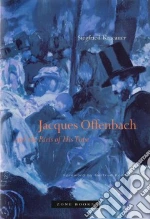 Title :
Jacques Offenbach and the Paris of His Time
Title :
Jacques Offenbach and the Paris of His TimeAuthor: Kracauer Siegfried, David Gwenda, Mosbacher Eric Publisher: Zone Books Siegfried Kracauer's biography of the composer Jacques Offenbach is a remarkable work of social and cultural history. First published in German in 1937 and in English translation in 1938, the book uses the life and work of Offenbach as a focal point for a broad and penetrating portrayal of Second Empire Paris. Offenbach's immensely popular operettas have long been seen as part of the larger historical amnesia and escapism that pervaded Paris in the aftermath of 1848. But Kracauer insists that Offenbach's productions must be understood as more than glittering distractions. The fantasy realms of such operettas as La Belle Hélène were as one with the unreality of Napoleon III's imperial masquerade, but they also made a mockery of the pomp and pretense surrounding the apparatuses of power. At the same time, Offenbach's dreamworlds were embedded with a layer of utopian content that can be seen as an indictment of the fraudulence and corruption of the times. This edition includes Kracauer's preface to the original German edition, translated into English for the first time, and a critical foreword by Gertrud Koch. € 33,50
|
|
|
1998 |
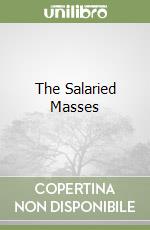 Title :
The Salaried Masses
Title :
The Salaried MassesAuthor: Kracauer Siegfried, Hoare Quintin (TRN) Publisher: Verso Books € 20,30
|
|
|
1997 |
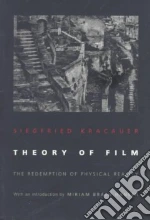 Title :
Theory of Film
Title :
Theory of FilmAuthor: Kracauer Siegfried Publisher: Princeton Univ Pr Siegfried Kracauer's classic study, originally published in 1960, explores the distinctive qualities of the cinematic medium. The book takes its place alongside works in classical film theory by such figures as Béla Balázs, Rudolf Arnheim, and André Bazin, among others, and has met with much critical dispute. In this new edition, Miriam Bratu Hansen, examining the book in the context of Kracauer's extensive film criticism from the 1920s, provides a framework for appreciating the significance of Theory of Film for contemporary film theory. € 37,40
|
 Title :
Il romanzo poliziesco. Un trattato filosofico
Title :
Il romanzo poliziesco. Un trattato filosoficoAuthor: Kracauer Siegfried Publisher: Editori Riuniti € 6,20
|
|
1995 |
 Title :
The Mass Ornament
Title :
The Mass OrnamentAuthor: Kracauer Siegfried, Levin Thomas Y. Publisher: Harvard Univ Pr Siegfried Kracauer was one of the twentieth century's most brilliant cultural critics, a daring and prolific scholar, and an incisive theorist of film. In this volume his finest writings on modern society make their long-awaited appearance in English. This book is a celebration of the masses--their tastes, amusements, and everyday lives. Taking up themes of modernity, such as isolation and alienation, urban culture, and the relation between the group and the individual, Kracauer explores a kaleidoscope of topics: shopping arcades, the cinema, bestsellers and their readers, photography, dance, hotel lobbies, Kafka, the Bible, and boredom. For Kracauer, the most revelatory facets of modern life in the West lie on the surface, in the ephemeral and the marginal. Of special fascination to him is the United States, where he eventually settled after fleeing Germany and whose culture he sees as defined almost exclusively by "the ostentatious display of surface." With these essays, written in the 1920s and early 1930s and edited by the author in 1963, Kracauer was the first to demonstrate that studying the everyday world of the masses can bring great rewards. The Mass Ornament today remains a refreshing tribute to popular culture, and its impressively interdisciplinary essays continue to shed light not only on Kracauer's later work but also on the ideas of the Frankfurt School, the genealogy of film theory and cultural studies, Weimar cultural politics, and, not least, the exigencies of intellectual exile. In his introduction, Thomas Levin situates Kracauer in a turbulent age, illuminates the forces that influenced him--including his friendships with Walter Benjamin, Theodor Adorno, and other Weimar intellectuals--and provides the context necessary for understanding his ideas. Until now, Kracauer has been known primarily for his writings on the cinema. This volume brings us the full scope of his gifts as one of the most wide-ranging and penetrating interpreters of modern life. € 46,80
|
|
|
1985 |
 Title :
Georg
Title :
GeorgAuthor: Kracauer Siegfried Publisher: Einaudi € 12,91
|
|
|
1984 |
 Title :
Jacques Offenbach e la Parigi del suo tempo
Title :
Jacques Offenbach e la Parigi del suo tempoAuthor: Kracauer Siegfried Publisher: Marietti 1820 € 18,59
|
|
|
1982 |
 Title :
La massa come ornamento
Title :
La massa come ornamentoAuthor: Kracauer Siegfried Publisher: Prismi € 9,00
|